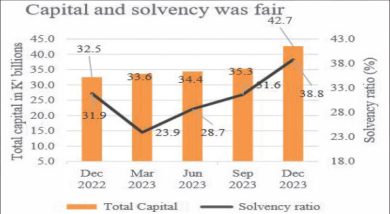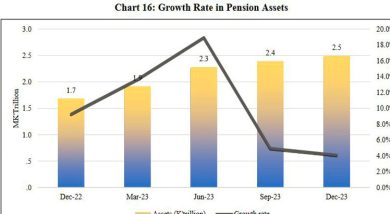Devaluation heralds tough times ahead
 The bold move by the Reserve Bank of Malawi (RBM) on Monday to devalue the kwacha by about 49 percent is likely to have a domino effect on firms and key macro-economic variables.
The bold move by the Reserve Bank of Malawi (RBM) on Monday to devalue the kwacha by about 49 percent is likely to have a domino effect on firms and key macro-economic variables.
The devaluation means the local unit has fallen to K250 per US dollar from the previous K168.
A visit to commercial banks in Blantyre City showed that the kwacha was pegged at different rates, a move an analyst said shows that market forces are at work.
RBM’s move comes against the background of complaints from the business community and money market players, among others, that the local unit was heavily overvalued with the black market rate trading at around K300 to one US dollar against the official rate of K168.
The overvalued local currency has been a major contributor to the rising liquidity levels over the past few weeks which hit K10 billion a fortnight ago and could further push up the inflation rate currently at 11.4 percent from 6.6 percent last January.
Rise in inflation
A softer kwacha could also worsen the inflation outlook and exert upward pressure on latest rates.
Money market analysts argued that there is need for reasonable inflows of foreign exchange reserves to settle the huge backlog of foreign bills.
Government’s reluctance to devalue the currency for some time has resulted in unofficial black market prices being increasingly passed to consumers.
Analysts who spoke to Business News on Monday agreed the RBM move will have devastating consequences on consumers due to immediate anticipated rise in commodity prices.
“A devaluation of the kwacha will cause imports to become more expensive; hence, worsening the inflationary environment and causing the trade deficit to widen.
“In addition, this will put a strain on profits of importing companies and also on the wider economy,†said an investment advisory firm, Nico Asset Managers Limited, in its April 2012 economic review.
Money market analyst James Chikavu Nyirenda, who is also chief executive officer of the Blantyre-based portfolio and investment managers Alliance Capital Limited,
observed that an immediate general increase in prices of commodities is expected largely because fuel prices will also have to be adjusted upwards.
“The prices will drastically go up more so because unscrupulous businesspeople will take advantage of the devaluation,†said Nyirenda.
Increase in bank rate
With the rising inflation, he said, the RBM will likely be under pressure to increase the bank rate—the rate at which commercial banks borrow from the central bank and which traditionally is the benchmark against which the banks base their lending rates to the public—to rein in on rising inflation which has found a comfort zone in the double digits since January 2012.
The bank rate is currently at 13 percent.
At the same time, the Liquidity Reserve Ratio (LRR)—clients’ deposits held by the RBM with no interest—now at 15.5 percent, will likely be adjusted upwards, said the analyst.
University of Malawi’s Chancellor College economist Collen Kaluwa said Malawians should brace for tougher times ahead.
“Fuel cost will go up which will result in transportation costs going up as well,†he said, adding that generally, devaluation is mostly good for countries whose economies are export oriented, citing Japan as an example.
But Kaluwa noted that Malawian companies that export their goods will benefit from the easing of the kwacha rate because their goods will be competitive on the international market.
“This means that these companies will be exporting cheaply,†he said.
He, however, observed that the devaluation will not have any effect on interest rates, arguing the RBM will use its monetary policy tools to rein in rising liquidity levels on the market.
The current zero-deficit budget, set to expire at the end of June 2012, could also be off balance because a devaluation of this magnitude was not factored into the fiscal package.
Former late president Bingu wa Mutharika was against devaluation of the local unit, saying doing so would hurt the majority poor.
At the conclusion of their mission, International Monetary Fund (IMF) mission chief for Malawi Tsidi Tsikata in a statement dated April 2 2012, said the current foreign exchange situation was triggered by a fall in tobacco earnings and aid inflows, but is symptomatic of the country’s weak balance of payments position.
“Over the years, persistent overvaluation of the kwacha has contributed to growth in imports outpacing growth in exports while official international reserves have remained at very low levels, thus rendering the economy highly vulnerable to external shocks,†said Tsikata.
The authorities’ recent attempts to tighten restrictions on foreign currency transactions created distortions which are boosting informal activity at the expense of the formal economy, with adverse consequences for official sources of foreign exchange and government revenues.





